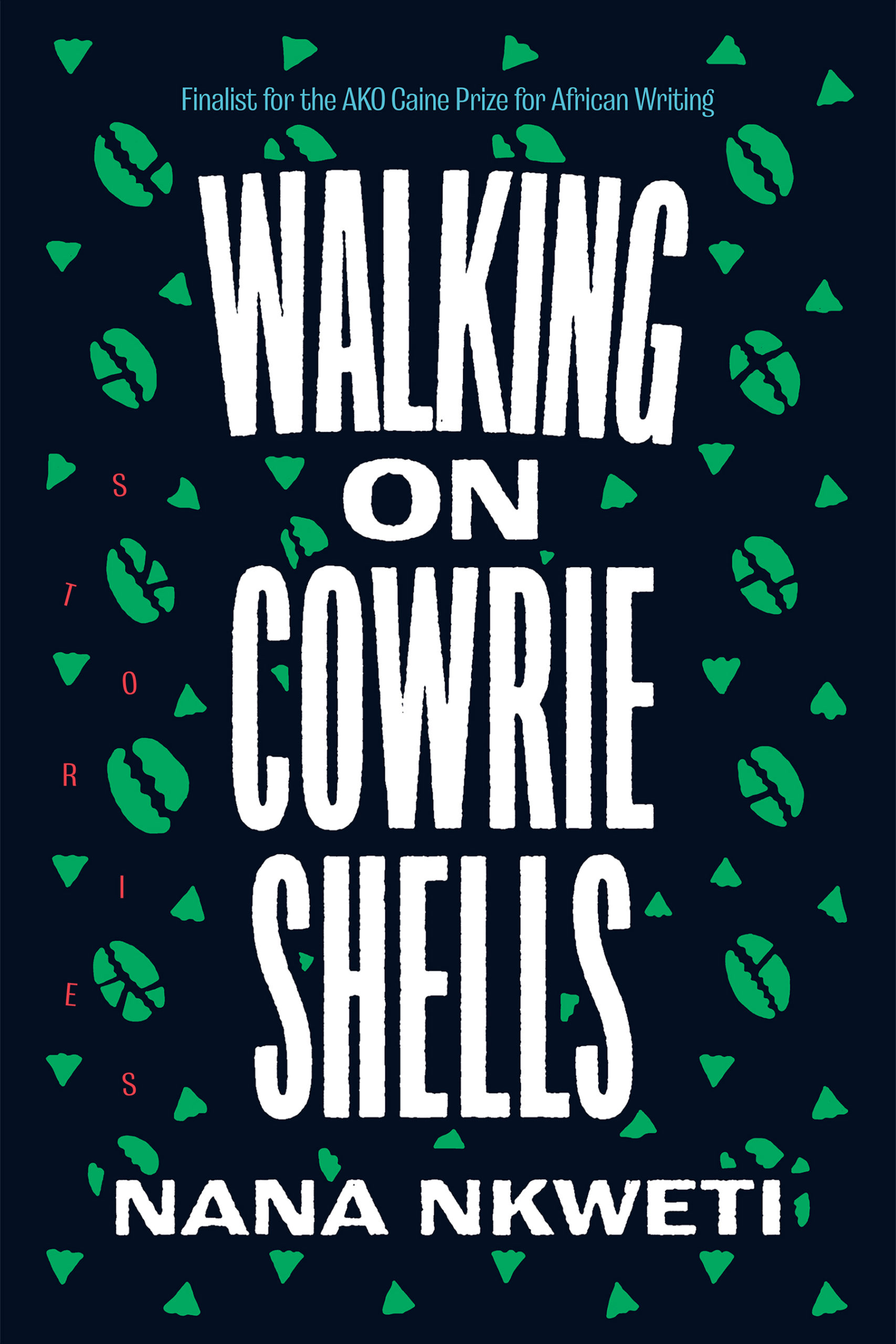
The Baby Shower
I walk into a room of double-chinned smiles and belly laughs. Every woman—there are only women—looks ample, replete. A susurrus of sighs and coos emanates from their midst. I move closer to investigate. The source? Perpetual, the mother-to-be, happily ensconced in a ribbon-decked place of honor, a ravaged gift box balanced on the rotunda of her tummy. Strewn at her feet, gutted boxes, once fatty with BabyBjörns, day rompers, night rompers, and Diaper Genies.
“Pepe, I done reach,” announces my cousin Belinda. I note the collective eye roll from the women gathered. Belinda’s tardiness is legend, even in a social set where four-o’clock weddings often start at seven.
“Chey, Belinda, you di talksay you done reach? You for come and baby done already born, oh!” jokes one older aunty, adjusting the auburn Jheri curl wig capsized on her head.
There is a chorus of laughter. Perpetual, already cultivating an air of maternal stoicism, grants Belinda a beatific smile. Belinda bends to hug her friend, then places our present on the pile of unopened gifts under the watchful eye of Helena, who is dutifully gathering up shredded wrapping and tissue paper in frenzied colors like fuchsia! and magenta!
My stomach is growling, yet I fight the urge to nibble my storebought scones. Instead, I place them gingerly on a table so heavily laden with food its spindly wooden legs are wobbling, knock-kneed. There is foufou, ndole, groundnut stew, jollof rice, plantains, koki corn, koki beans, achu, gari, and at least three kinds of chicken: stewed, roasted, and a tough bush fowl fried to the consistency of a fist.
My salad days are over.
For three weeks my simple move from New York to Washington, DC, has been complicated by wiring issues in my new apartment. I am staying with Belinda, captive to her many comings and goings. As a doyenne of the metro-area Cameroonian community, my cousin’s social calendar is lousy with cry-dies, born-houses, knock-doors, and their pale American cousins: the funeral, baby shower, and engagement party. With so much on our plate, as it were, I feel weighed down. I need room, a space to write, research in peace, and sometimes, only sometimes, cry out at the ache that was my ex’s parting gift to me a year ago. Steven had wanted me in that ribboned hot seat, but I’d balked—chosen a fellowship in Johannesburg over nappies and onesies.
On a nearby couch a platoon of women swap maternity war stories: one lifts her blush pink silk blouse to reveal a jagged C-section battle scar, another speaks of a third miscarriage followed by the triumphant delivery of six children. Tumbling out are tales of bowel movements on the labor bed, ectopic pregnancies, and attacks of preeclampsia. Calabar chalk quells prenatal nausea, but can also enlever un bébé, did you know? They are veterans. With stretch-mark badges of honor to prove it. I listen to them, rub my empty belly, and find I am nibbling on a scone in spite of myself. Damn.
“I done reach,” says a new voice. A particularly pulpy woman strides into the room. There are no eye rolls this time. I watch her flit about, arresting, then resuscitating chatter in her wake. She is all smiles, all dimpled cheeks and dimpled arms jutting from a tight tank top bedazzled with one word: Diva. She is everywhere. She is in front of me now, or rather in front of the food table, where I hover like some wraith. I do feel somewhat uncarnate, hollowed by hunger.
“Chop done ready?” She rubs her stomach, eyeing the table, then me, its unofficial guardian. “Ma belly dey bite. You no hear as it dey grumble?”
“Well, they haven’t officially opened the table.” I rub my own stomach in pang-filled sympathy. “But you can have one of these.”
She eyes the proffered plate of scones or perhaps my use of “grammar”—standard English—suspiciously.
“You be na Belinda ee cousin,” then switching to English, “Chambu, right?” “Yes, I’m Chambu, uh, Genevieve Chambu Johnson from New York—”
“The language professor?”
“Sort of, not quite. I’m a linguistic anthropologist.” I hurry forward at her blank stare. “I study the relationship between languages and culture.”
“Belinda said you study pidgin . . . but you don’t know how to speak?”
“I do, I do. My pronunciation is just kind of slow, very old mami.” I smirk at my own joke.
She smiles. It is not a nice smile.
I think of the gray-haired mamas I had spent my summers with in the village, mumbling our dialect and pidgin to me as they chewed kola nut—their tongues heavy with its bitter juices, with their bitter tales of feckless husbands, of jealous co-wives, of babies forfeit.
“But you grew up in Cameroon, no be so?”
“Yes, but I’m Halfrican. My dad is American—Brooklyn, born and raised. So he wanted us to go to the American school. No Pidgin 101 classes there. More like people asking me did I speak ‘African.’” I smile.
“Hmmph, an akata.” She says the last word with emphasis. Like my father’s African American otherness explained any and all alleged shortcomings. I find myself wanting to champion my dad—a man who’d so wholeheartedly embraced his wife’s homeland as his own that our village had given him the honorary title Nwafor.
But I don’t. Instead, I turn away and find myself absently nibbling my scone again. Damn.
Across the room, Belinda stands in the gaggle of acolytes that always seems to spring up around her at these affairs. I feel the weight of this woman’s gaze on the side of my cheek, my bare shoulder— scanning me to the bone. I turn to face her. There is a knowing half smile hooked crookedly on her lips. I’ve seen that look before in all its presumptuous incarnations. She’s figured me out, got my number like some scratch-off lotto ticket, laid bare by a grubby coin rub. Pennies for my thoughts.
I put the scone down, my chin up. “What’s your name, again?”
“Catherine Etuge—” “Well, Cath-er-ine. I’m an a-ka-ta.” I say the last word with emphasis, scone crumbs flying from my gesturing hand. “My two sisters and my brother are a-ka-tas.” My voice and color are rising. “And you’re living in a city full of a-ka-tas, making good money and a living because a-ka-tas died and fought for all Black folks’ rights to—”
“Chambu. Cata. You two have met,” says a cheery Belinda. Her handmaiden, the normally dour Helena, is in tow, eyes gleaming. “Chambu, Catherine is Phillip Nyami’s sister.”
Belinda is eyeing us both now. Me: flushed of face. Catherine: slittyeyed, mouth agape, gulping in air like a new brand of toddler, tantrum pending.
Phillip Nyami? Ahh. That explains Helena’s gleam, Belinda’s cheer—a man. My cousin fancies herself a matchmaker. Under her roof, her tutelage, I will finally find a husband—correction—make that a Cameroonian husband, a father for my children, a man who will settle down and claim me—unlike my “useless” akata ex. She still doesn’t know it was I who was the restless one.
I shake my head, my anger on mute.
Last night, I’d been shaking my head in refusal. I was in the car with Belinda, driving home from dropping her son off at peewee soccer practice and her daughter at ballet, when she pounced. She caught me unaware, distracted by my meditations on the radio dial, by the rare opportunity to control the music selection.
“Phillip is a good man,” she began. “Don’t you want children? Louchang and Meka ask me all the time, ‘Mommy, when is Aunty Chambu going to have babies?’ They want cousins.
Low blow, Belinda, using the twins. Low blow, indeed.
“The answer is still no, Bee,” I’d said, exhaling a deep breath. “No more blind dates, no more setups. No more tagging my photos on Facebook for random suitors back home.”
“You and that Facebook. How many months did it take you to remove Steven’s photos from your page? And why does your status still say ‘in a relationship’?”
“Because I am in a relationship,” I declared. “With myself. Best one of my life.”
Belinda shook her head. She worried so. It had taken years of excruciating fertility treatments for her to conceive. Six years ago, she became a manyi, mother of twins no less, accorded all the respect that was due. To her, my half-akata status coupled with a New Yorker’s natural independence of spirit had conspired to support a pernicious state of spinsterhood—never mind I was only twenty-nine. Most worryingly, I was childless, an artificial barrenness that, in her view, threatened to be never ending.
“But Chambu—”
“Why can’t I find a decent radio station down here?” I jabbed at random preset buttons and happened upon a show promo for some comedian cum disc jockey who’d written a book on “how to find a good man” in response to the supposed dearth of “eligible brothas.” Vindicated, Belinda batted my twitchy fingers away from changing the station.
“Phillip’s a medical doctor. A ssssurgeon.” The last part sounded like a sigh on her lips. Belinda’s husband, John, is “merely” a pharmacist, one who’d gone through four grueling years of night school to get his PharmD degree and bragging rights for his wife.
“I’ve already got a ‘Dr.’ in front of my name, Bee. I don’t need to be Mrs. Dr. So-and-So to feel validated as a human being.” I cringed as soon as I said it, though I’d meant every word.
Belinda changed tactics. “He’s from our village. Your mom would be so happy.”
“Um, I don’t think so, cuz. Mom married Anthony Johnson from BK. So, no.”
“Na ya loss, oh! ” she’d fumed, casting a supremely disapproving eye my way as we turned into our driveway, then softly, “I just want you to be happy, Chambu.”
“Who says I’m not happy?”
************
Preorder Walking on Cowrie Shells: bookshop.org


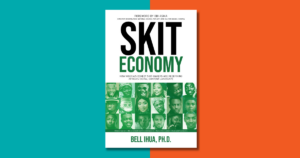
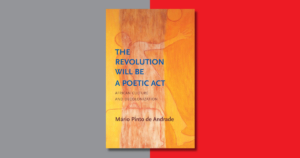
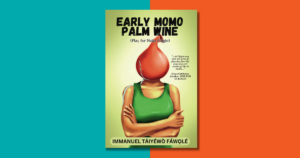
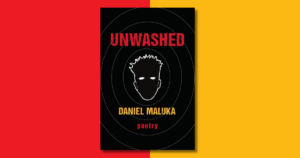

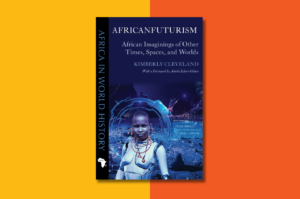

COMMENTS -
Reader Interactions